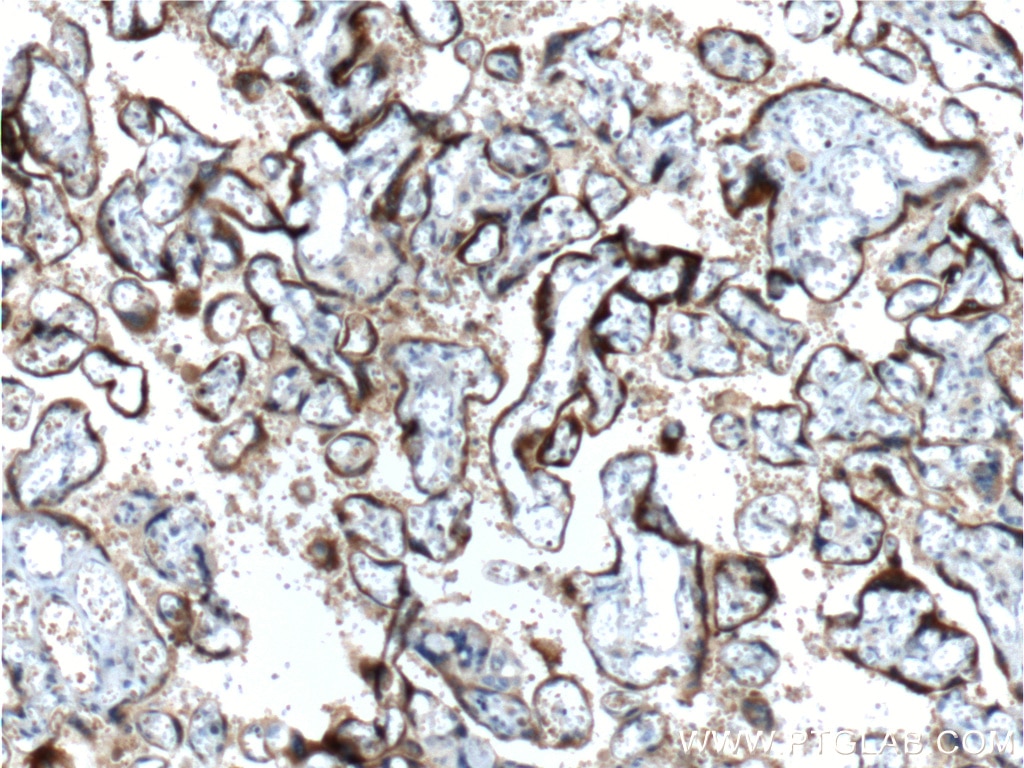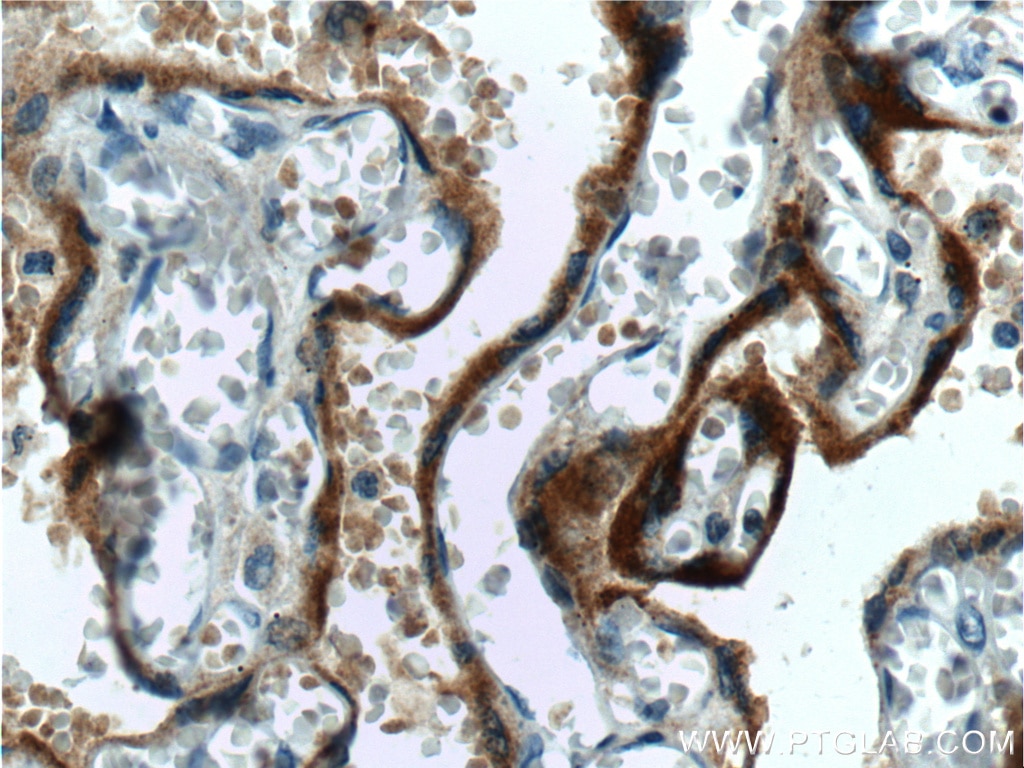Tested Applications
| Positive IHC detected in | human placenta tissue Note: suggested antigen retrieval with TE buffer pH 9.0; (*) Alternatively, antigen retrieval may be performed with citrate buffer pH 6.0 |
Recommended dilution
| Application | Dilution |
|---|---|
| Immunohistochemistry (IHC) | IHC : 1:50-1:500 |
| It is recommended that this reagent should be titrated in each testing system to obtain optimal results. | |
| Sample-dependent, Check data in validation data gallery. | |
Product Information
60334-1-Ig targets hCG Beta in IHC, ELISA applications and shows reactivity with human samples.
| Tested Reactivity | human |
| Cited Reactivity | human |
| Host / Isotype | Mouse / IgG2a |
| Class | Monoclonal |
| Type | Antibody |
| Immunogen |
CatNo: Ag2191 Product name: Recombinant human CGB,hCG protein Source: e coli.-derived, PGEX-4T Tag: GST Domain: 1-165 aa of BC022796 Sequence: MEMFQGLLLLLLLSMGGTWASKEPLRPRCRPINATLAVEKEGCPVCITVNTTICAGYCPTMTRVLQGVLPALPQVVCNYRDVRFESIRLPGCPRGVNPVVSYAVALSCQCALCRRSTTDCGGPKDHPLTCDDPRFQDSSSSKAPPPSLPSPSRLPGPSDTPILPQ Predict reactive species |
| Full Name | CG beta |
| Calculated Molecular Weight | 165 aa, 18 kDa |
| GenBank Accession Number | BC022796 |
| Gene Symbol | hCG Beta |
| Gene ID (NCBI) | 1082 |
| RRID | AB_2881443 |
| Conjugate | Unconjugated |
| Form | Liquid |
| Purification Method | Protein A purification |
| UNIPROT ID | P0DN86 |
| Storage Buffer | PBS with 0.02% sodium azide and 50% glycerol, pH 7.3. |
| Storage Conditions | Store at -20°C. Stable for one year after shipment. Aliquoting is unnecessary for -20oC storage. 20ul sizes contain 0.1% BSA. |
Background Information
Beta-hCG (beta-human chorionic gonadotropin) is a glycoprotein hormone produced by the placenta during pregnancy. It is a critical marker used in both obstetrics and oncology for various diagnostic and monitoring purposes. hCG is composed of two subunits: an alpha subunit (similar to other glycoprotein hormones like LH, FSH, and TSH) and a unique beta subunit (β-hCG). The beta subunit is the primary focus for diagnostic tests due to its specificity. β-hCG is initially secreted by the syncytiotrophoblast cells surrounding the developing embryo and later by the placenta.
Protocols
| Product Specific Protocols | |
|---|---|
| IHC protocol for hCG Beta antibody 60334-1-Ig | Download protocol |
| Standard Protocols | |
|---|---|
| Click here to view our Standard Protocols |






